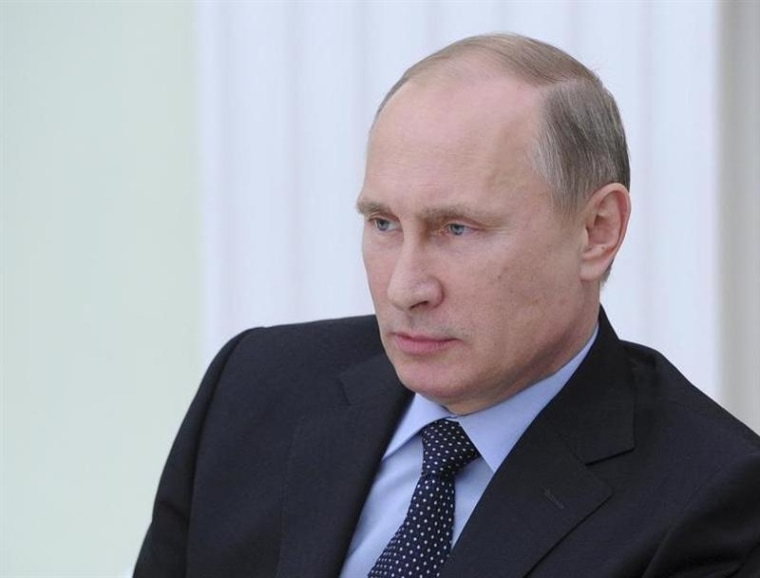With the Winter Olympics in the Black Sea resort of Sochi looming, Russia passed a tough new anti-terrorism law that could require relatives or friends to pay for damage caused by militants.

The Games — Feb. 7-23, 2014 — will take place just a few hundred miles from the restive North Caucus region where rebels are fighting to install an Islamic state.
Moscow has cracked down on the militants, who are centered in Dagestan, but a recent suicide bombing on Oct. 21 heightened security fears ahead of the Games.
The attack -- at a bus stop in the southern Russian city of Volgograd -- killed five people and injured another 32, eight critically. Though the explosion was some 400 miles from the North Caucus region, it was blamed on a 30-year-old woman from Dagestan, Naida Aiyalova.
The new anti-terrorism law, signed by Russian President Vladimir Putin on Saturday and announced on Sunday, introduces prison terms of up to 10 years for training that is “aimed at carrying out terrorist activity,” Reuters reported.
In addition, the law requires compensation for damages to be paid by perpetrators of terrorism acts as well as relatives or even close acquaintances if “they obtained money, valuables and other property as a result of terrorist activity,” according to documents published on a Kremlin legal website on Sunday.
The law, which was originally proposed to the parliament by the Kremlin, also allows for the seizure of property of relatives or close acquaintances of suspected militants if they don’t hand over documents proving the property was rightfully acquired.
The measure was just the latest move by Putin to address issues that could threaten the Games.
Last week, Putin tried to allay fears that gay athletes and visitors would face discrimination in Sochi.
Putin told officials from Russian winter sports federations as well as visiting IOC President Thomas Bach that Sochi would roll out the welcome mat for everyone, despite widely criticized Russian law that bans gay “propaganda.”
That controversial Russian law, signed by Putin in June, outlaws “propaganda of nontraditional sexual relations among minors,” which is widely viewed as extreme homophobia by gay activists who feared a crackdown at the Games.
The U.S. State Department even issued a warning for homosexuals traveling to Russia for the Sochi Olympics, stating that visitors who violate the law could face fines, jail and deportation.
A poll taken by the state-owned All Russian Center for Public Opinion this summer showed that 88 percent of Russians supported the law.
Indeed homophobia runs deep in Russia. Gay rights marches are routinely broken up with police detaining activists even before demonstrations begin.
Human Rights Watch, citing what it called “abuses” linked to the Sochi Games, including exploitation of migrant works in constructing Olympic venues, last week said the law risks overshadowing the Winter Olympics and should be repealed.
"The Sochi Olympics risk being remembered as the anti-gay Games, unless the IOC is willing to stand up and defend the principles of its own Olympic Charter," Jane Buchanan, associate director for Europe and Central Asia at Human Rights Watch, said in a statement posted on the group’s website.
NBC News producer Albina Kovalyova, Reuters and The Associated Press contributed to this report.
Related: